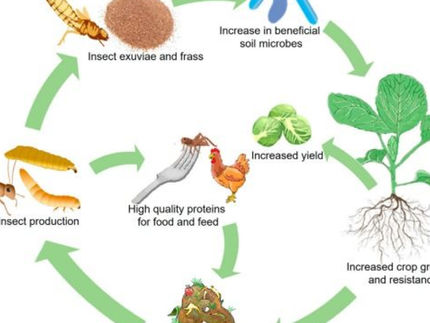A new disease called halo blight threatens Michigan hop production
If you're a beer drinker, you've noticed that hoppy beers have become increasingly popular. Most of the nation's hops come from the Pacific Northwest. However, commercial hop production regions have expanded significantly. In Michigan hop production nearly tripled between 2014 and 2017 and in 2019, Michigan growers harvested around 720 acres of hops.
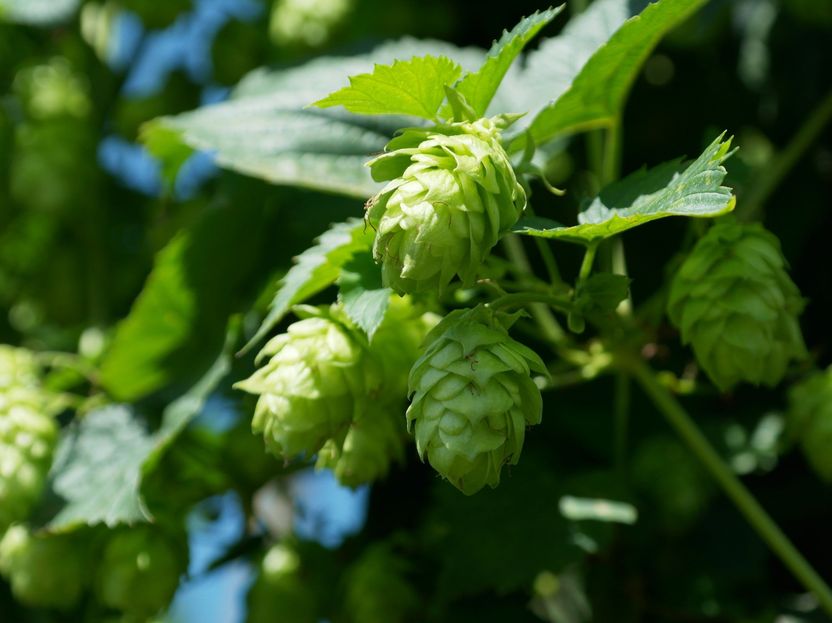
pixabay
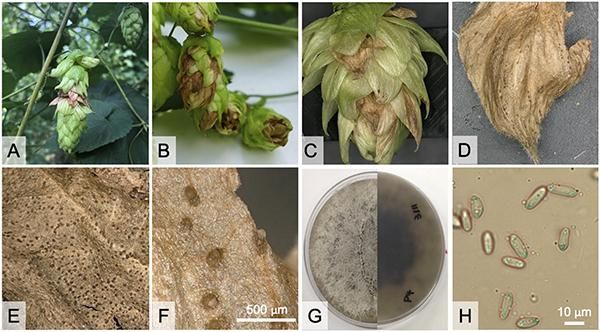
Signs and symptoms of a Diaporthe sp. 1-MI on hop cones
Douglas S. Higgins, Ross J. Hatlen, Jan M. Byrne, Monique L. Sakalidis, Timothy D. Miles, and Mary K. Hausbeck
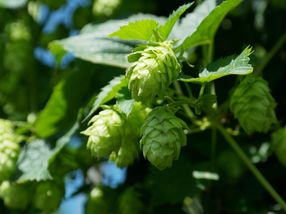
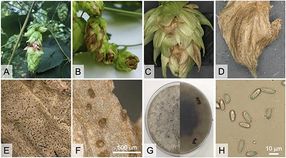
Michigan hop growers contend with unique challenges as a result of frequent rainfall and high humidity during the growing season. In 2018, growers approached Michigan State University researchers and the Michigan State University's Plant & Pest Diagnostics lab with concerns about a leaf blight they had never seen before. This was followed by reports of hop cones shattering during harvest and yield losses in fields with the affected leaves.
Michigan State University scientists, including Doug Higgins, investigated, observing a fungus growing in the symptomatic leaves. They set out to determine if the fungus was causing the symptoms and if the leaf and cone symptoms were linked to the same pathogen. They also wanted to determine how far the disease had spread in Michigan.
They determined that the fungus was the same on both the leaves and the cones. "The fungus was shown to infect and cause disease in healthy hop plants," said Doug Higgins. "Interestingly, genetic testing showed that DNA from the fungal pathogen did not match DNA from other known fungal species. We concluded that it is novel species and for now called it Diaporthe sp. 1-MI."
As this novel fungal pathogen causes yellow margins to form around leaf lesions and the browning of cones, Higgins and colleagues named the disease "halo blight." Their surveys indicated that halo blight is widespread in Michigan, and that other production regions with similar climatic conditions might also be at risk.
"In Michigan, hop is a niche crop used by many local breweries. A disease outbreak could impact the supply of local hops to many small and independent businesses," explained Higgins. "Additionally, cone discoloration can alter hop quality and may have downstream implications on beer quality." Higgins recommends that additional research be conducted to understand how the disease moves and develop management strategies.
Original publication
Other news from the department science

Get the food & beverage industry in your inbox
By submitting this form you agree that LUMITOS AG will send you the newsletter(s) selected above by email. Your data will not be passed on to third parties. Your data will be stored and processed in accordance with our data protection regulations. LUMITOS may contact you by email for the purpose of advertising or market and opinion surveys. You can revoke your consent at any time without giving reasons to LUMITOS AG, Ernst-Augustin-Str. 2, 12489 Berlin, Germany or by e-mail at revoke@lumitos.com with effect for the future. In addition, each email contains a link to unsubscribe from the corresponding newsletter.
